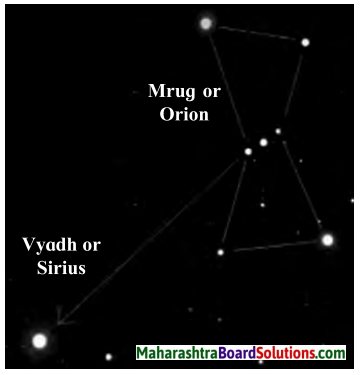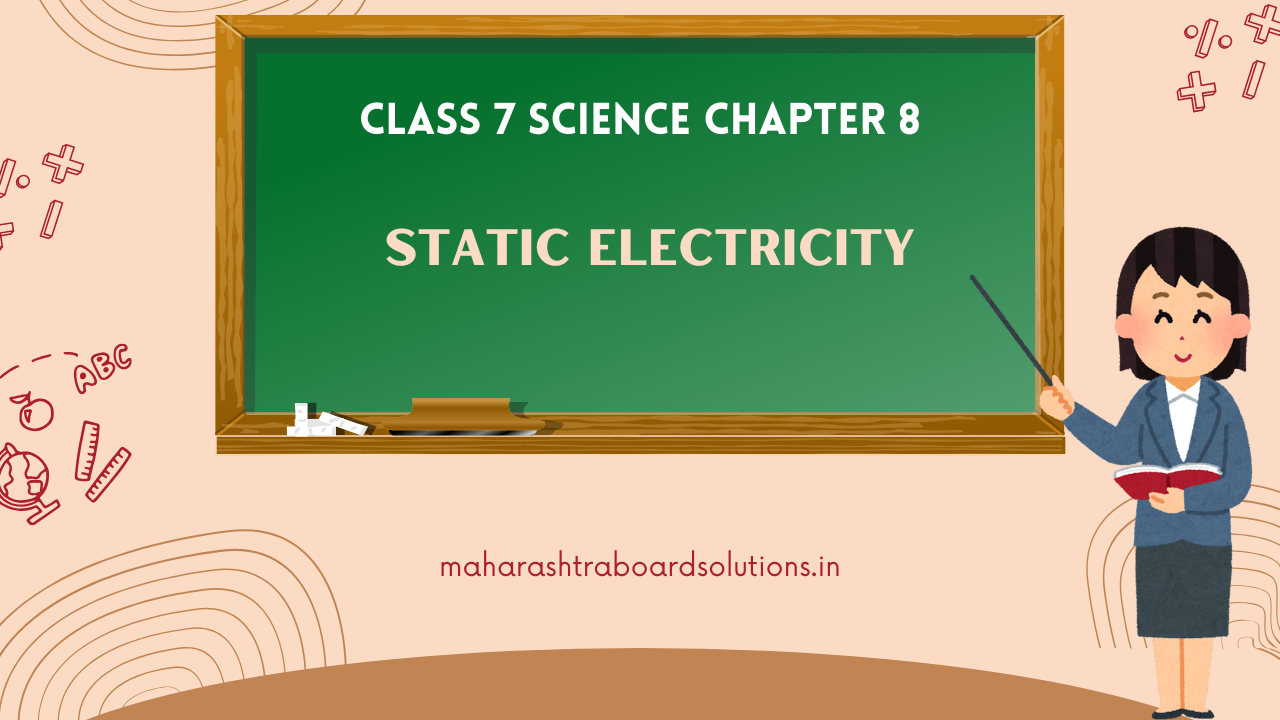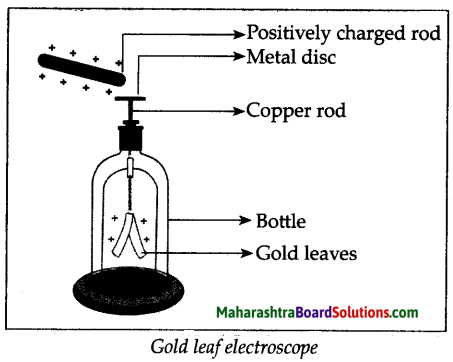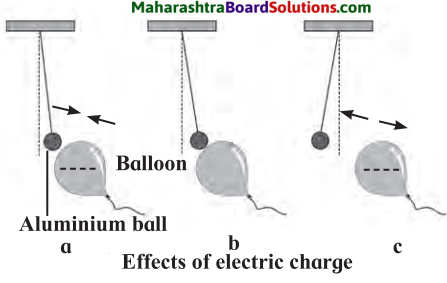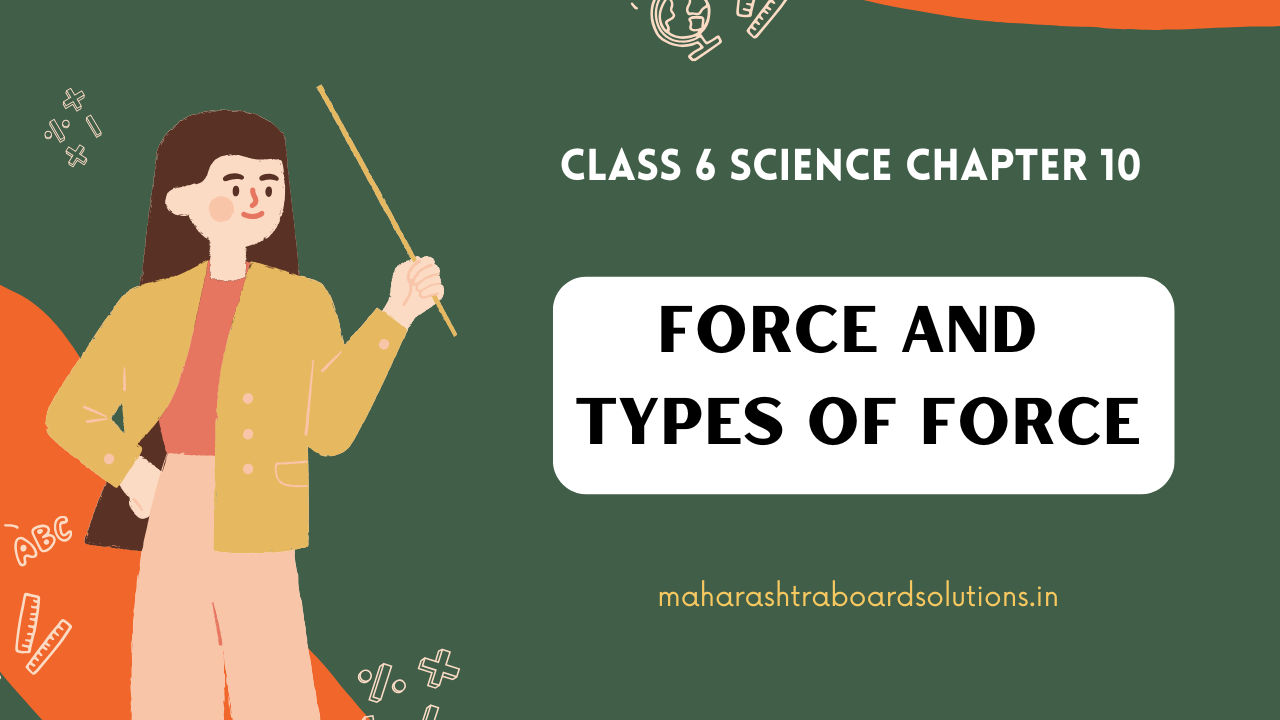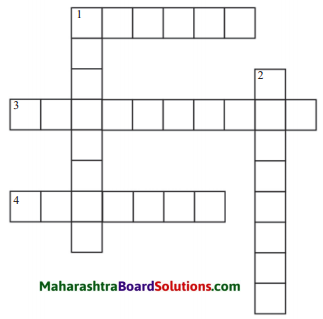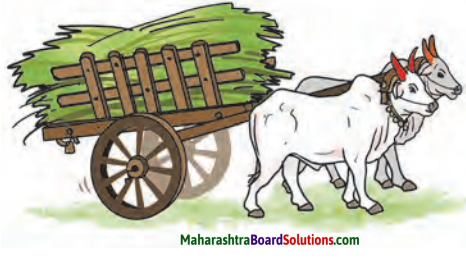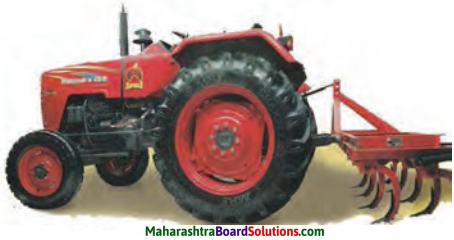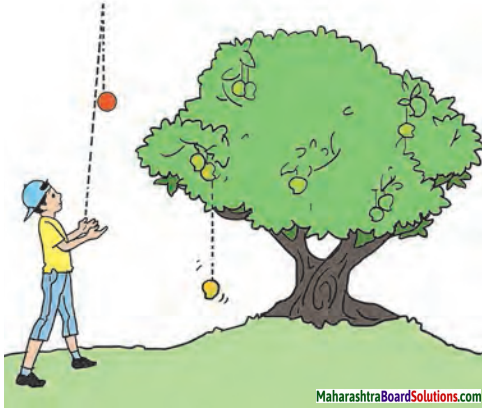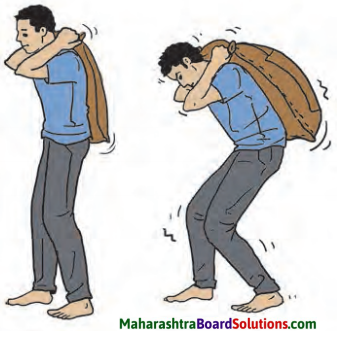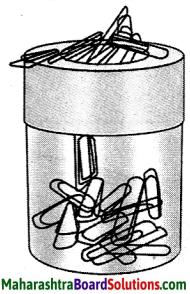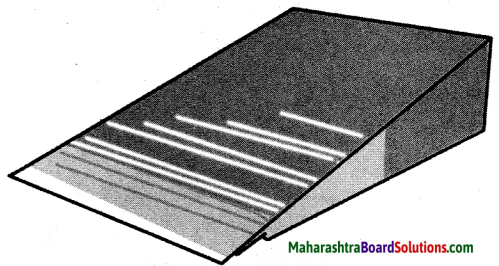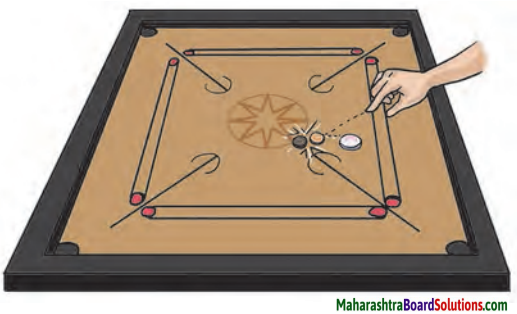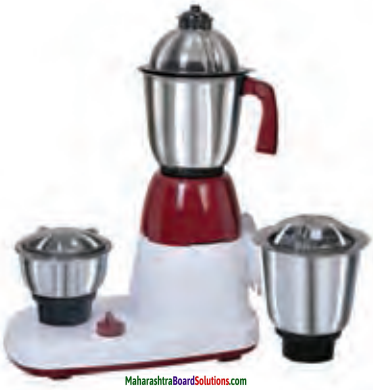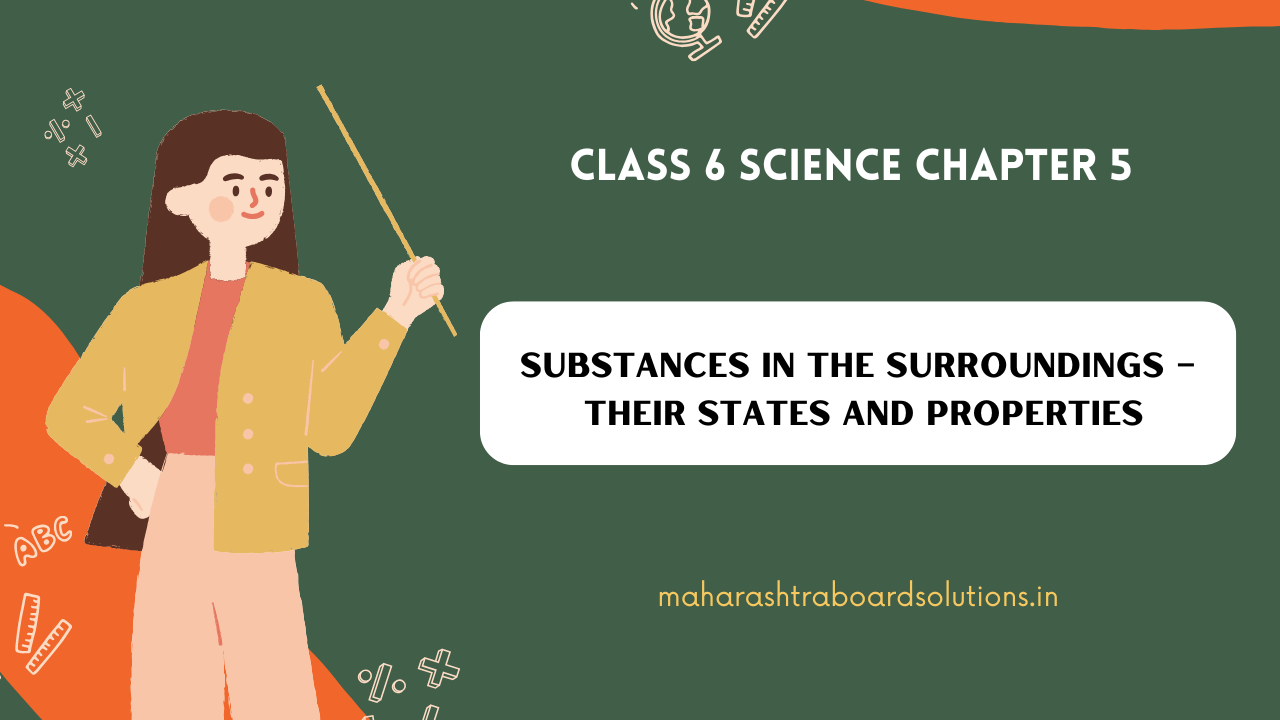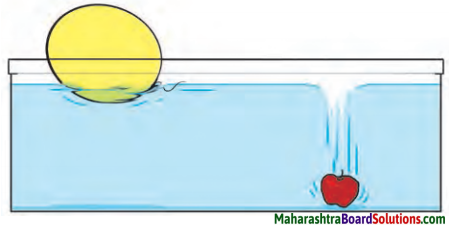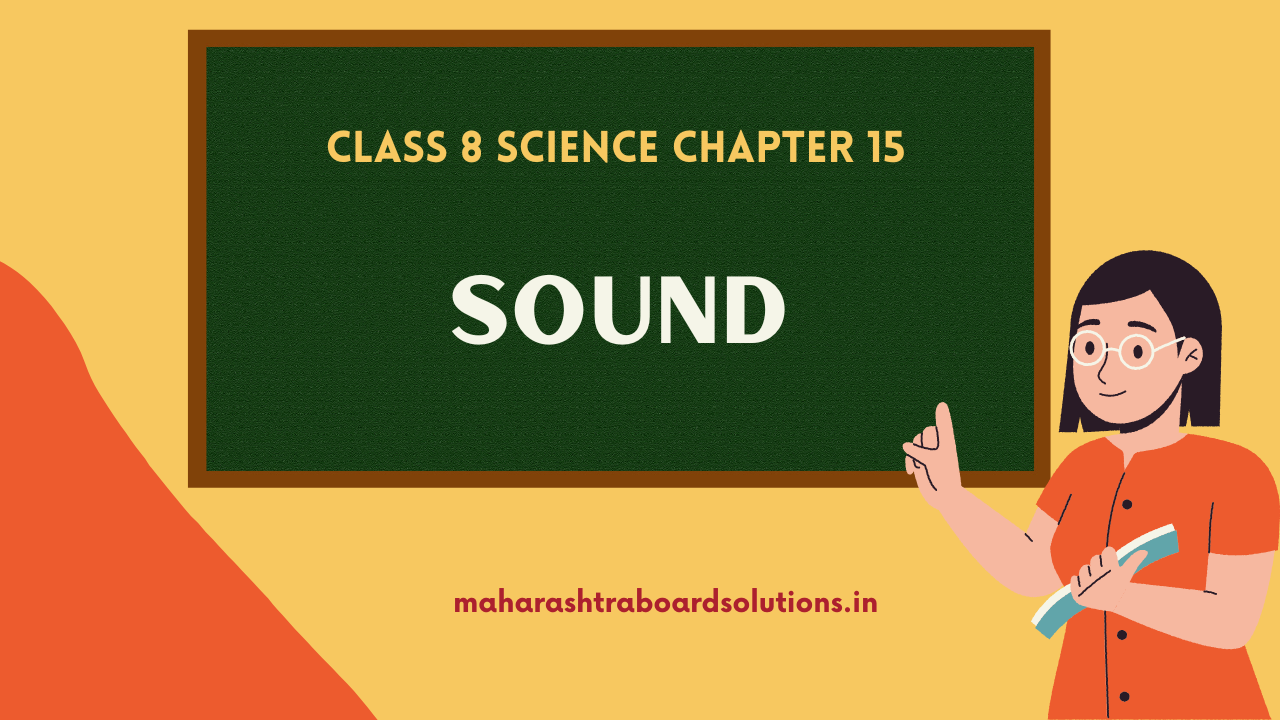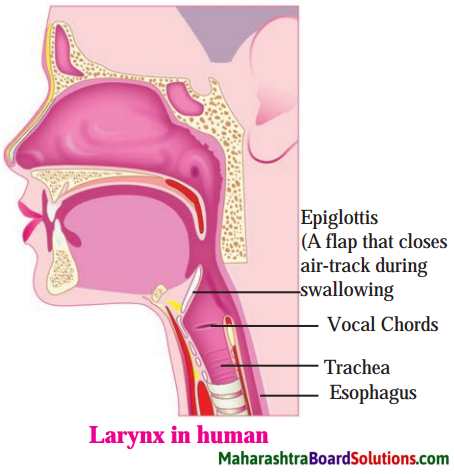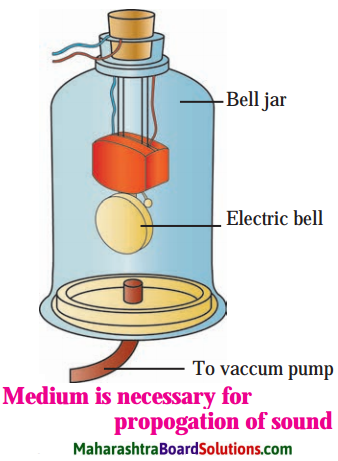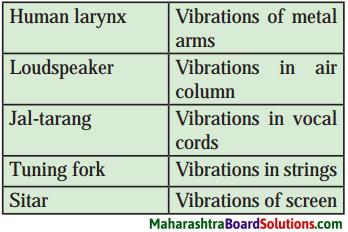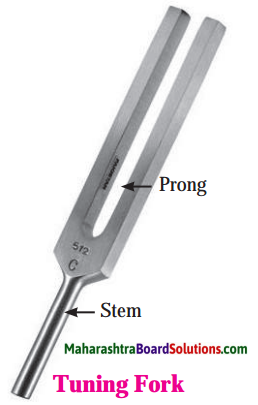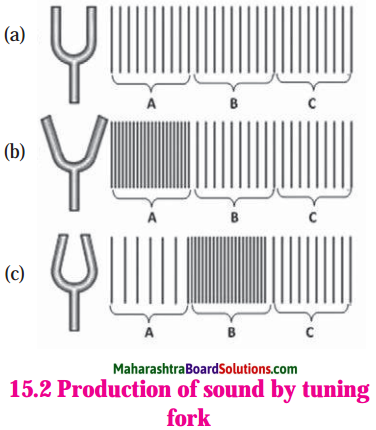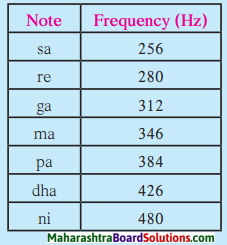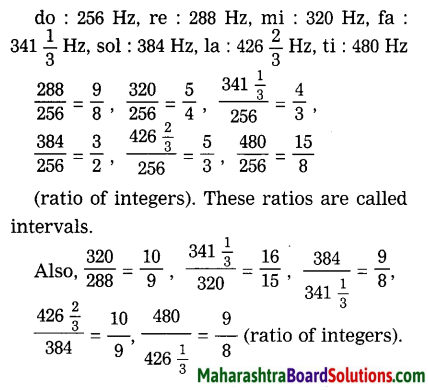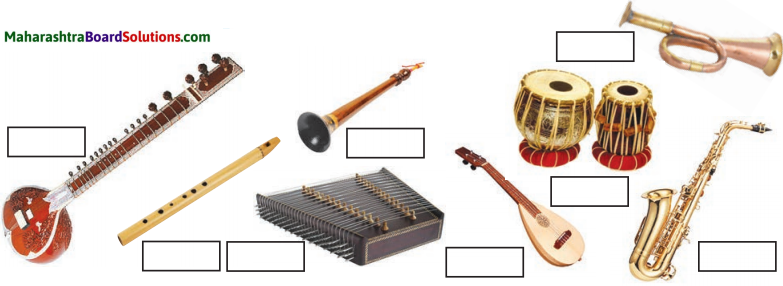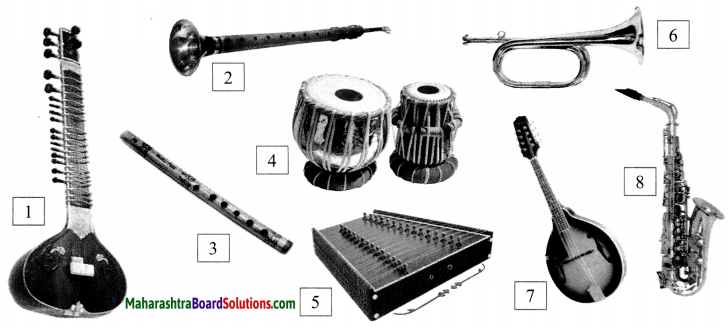Balbharti Maharashtra State Board Class 9 Political Science Solutions Chapter 3 India’s Defence System Notes, Textbook Exercise Important Questions and Answers.
India’s Defence System Class 9 Questions And Answers Maharashtra Board
Class 9 Political Science Chapter 3 India’s Defence System Questions And Answers Maharashtra Board
Political Science Class 9 Chapter 3 Question Answer Maharashtra Board
1. Choose the right option and rewrite the sentence:
Question 1.
The ______ of India is the Commander-in-Chief of all the Defence forces.
(a) President
(b) Prime Minister
(c) Defence Minister
(d) Governor
Answer:
(a) President
![]()
Question 2.
The ______ has the responsibility of protecting the coastline.
(a) Army
(b) Coast guard
(c) Border Security Force
(d) Rapid Action Force
Answer:
(b) Coast guard
Question 3.
The _______ has been established with the purpose of instilling among students the love of discipline and military training.
(a) Border Security Forces (BSF)
(b) Central Reserve Police Force (CRPF)
(c) National Cadet Corps (NCC)
(d) Rapid Action Force (RAF)
Answer:
(c) National Cadet Corps (NCC)
2. Explain with reasons whether the following statements are true or false:
Question 1.
It is necessary to end terrorism to ensure human security.
Answer:
True.
- The biggest challenge to human security is that of terrorism.
- Terrorism targets common, innocent people.
- It aims at creating terror or fear in their minds, so that they begin to feel insecure.
- Thus, in order to protect human security, it is necessary to put an end to terrorism.
Question 2.
Every nation creates a strong security system for itself.
Answer:
True.
- National Security is closely connected with geography because national security is more likely to be endangered by nations who are geographically closer.
- A nation must assess the threat to its geographical boundaries and the source of that threat.
- In order to keep this threat at bay, the nation has to increase its military might.
- The nation has to use modem technology to predict the threat, to build weapon systems and modernize and update the defence forces.
Question 3.
There are no issues of dispute between India and Pakistan.
Answer:
False.
- There are several disputes between India and Pakistan. For example, the Kashmir issue, disputes over river water sharing, the problem of infiltrations, dispute over the border, etc.
- India has continually tried to solve these issues through discussion and negotiations
![]()
3. Write short notes:
Question 1.
The functions of the Rapid Action Force
Answer:
The Rapid Action Force performs the task of bringing people’s lives to normalcy by moving in quickly in incidents of the threat to National Security such as bomb blasts or riots.
Question 2.
Human Security
Answer:
(i) In the Post – Cold War period, the concept of National Security changed and became broader. National Security is not just the security of the country but also of the people living in it, because security is ultimately for the people.
(ii) Hence; human security refers to human-centric thinking. In human security, it is expected that human beings should be protected from all sorts of dangers and they should be given the opportunities of education, health and development.
(iii) The concept of human security also includes the idea that a conducive environment should be created for everybody to live a respectable life by overcoming illiteracy, poverty, superstition, backwardness, etc. Human security necessitates the protection of the rights of minorities and weaker sections
Question 3.
Home Guards
Answer:
(i) This organisation was established in the pre-independence period. Citizens can join the Home Guards and assist in the defence of the country.
(ii) Any citizen, man or woman, between the age of 20 and 35 years can join the Home Guards.
(iii) This force has the following tasks: Maintain public security, supply of milk, water and other essential services during riots or strikes, to regulate traffic, to help people at the time of natural disasters like floods, earthquakes, etc.
![]()
4. Give your own opinion about:
Question 1.
Which of the forces related to India’s security would you like to join? Why?
Answer:
(i) If given a chance I would like to join the Indian Army.
(ii) India is surrounded by neighbours like Pakistan and China which have posed many threats to India’s territorial security through infiltration and cross-border terrorism.
(iii) The Arfny is thus the most challenging place to be, where service to protect the motherland would be valued the most.
(iv) The determination, discipline and patriotism which are intrinsic virtues of the Indian Army have always inspired me to do my bit for the nation.
(v) The training for physical fitness and the skills of various war operations can be best received through the Indian Army.
(vi) For these reasons I hold the Indian Army as the most sought after career and the ultimate destination of my life.
Question 2.
Give your views on the policy ‘Atoms for Peace’.
Answer:
(i) US nuclear policies had failed to prevent further nuclear proliferation, fuelled the arms race, suppressed the humanitarian benefits of civil nuclear technology and badly affected the development of the US nuclear industry.
(ii) In his “Atoms for Peace” speech of 1953, President Dwight D. Eisenhower captured the tensions and the ironies of the atomic age.
(iii) Eisenhower believed only nuclear preparedness offered protection; while nuclear weapons lead to war. Nuclear power offered progress and hope.
(iv) However, the motives behind Atoms for Peace extended beyond non-proliferation, arms control, and economic interests.
(v) Objective of the Eisenhower Administration was to set USA advantageously against USSR.
(vi) He envisaged to permit privatization and commercialization of fuel technologies, cooperation with foreign partners, and international nuclear commerce.
(vii) Ultimately, Atoms for Peace yielded billions of dollars in civil nuclear commerce for the US economy.
(viii) Atoms for Peace provided political cover for the biggest nuclear arms build-up in US history, and helped fuel the Cold War arms race.
![]()
5. Answer the following questions in brief:
Question 1.
What are the threats to National Security?
Answer:
(i) India’s security is not only threatened by outside powers, but also from within. It is not just the difference between external security and internal security that is important anymore.
(ii) Religion, regionalism, several rebellious movements based on ideology, race-ethnicity and economic inequality are creating instability. For example, the Naxalite movement is a threat to India’s internal security.
Question 2.
Write the functions of the Border Security Force.
Answer:
The Border Security Force performs tasks like:
- creating a sense of security in the minds of people living in areas near the border,
- preventing smuggling,
- patrolling the border, etc.
6. Do as directed:
Question 1.
Complete the table about security forces:
| Name of the Security Forces | Functions | Chief | Name of the Present Chief |
| Army | …………. | ………. | ……….. |
| ………. | …………. | Admiral | …………. |
| …………. | Protection of India’s air space | ……………. | ………….. |
Answer:
| Name of the Security Forces | Functions | Chief | Name of the Present Chief |
| Army | Protection of geographical boundaries | General | Manoj Mukund Naravane |
| Navy | Protection of the coast line | Admiral | Karambir Singh |
| Air Force | Protection of India’s air space | Air Chief Marshall | Rakesh Kumar Sing Bhadavria |
![]()
Question 2.

Answer:

Class 9 Political Science Chapter 3 India’s Defence System Additional Important Questions and Answers
Choose the correct option from the given options and rewrite the statements:
Question 1.
The ______ forces are responsible for protection and security of important locations.
(a) Paramilitary Forces
(b) Research and Analysis Wing
(c) Central Bureau of Investigation
(d) Interpol
Answer:
(a) Paramilitary Forces
![]()
Question 2.
The Air Force is in charge of protecting India’s ______.
(a) Borders
(b) Coastline
(c) Airspace
(d) Mineral Resources
Answer:
(c) Airspace
Question 3.
The Indian Army is the world’s ____ largest army.
(a) Second
(b) Fifth
(c) Seventh
(d) Third
Answer:
(c) Seventh
Question 4.
The Chief of Navy is known as ________.
(a) Admiral
(b) General
(c) Marshall
(d) Brigadier
Answer:
(a) Admiral
Question 5.
The National Defence Academy is at ______.
(a) Pune
(b) Dehradun
(c) Mumbai
(d) Delhi
Answer:
(a) Pune
![]()
Question 6.
_______ are neither completely military forces nor completely civil forces.
(a) Border Security Forces
(b) Paramilitary Forces
(c) Coast Guards
(d) Home Guards
Answer:
(b) Paramilitary Forces
Question 7.
The biggest challenge to human security is that of ______.
(а) Pollution
(b) Terrorism
(c) Natural calamities
(d) Corruption
Answer:
(b) Terrorism
State whether the following statements are true or false with reasons:
Question 1.
Naxalite Movement is a threat to India’s internal security.
Answer:
True.
- India’s security is not only threatened by outside powers but also from within.
- It is not just the difference between external security and internal security that is important anymore.
- Example naxalite movement is a threat to internal security.
Question 2.
There are no training institutes in our country for military personnel.
Answer:
False.
- Many training institutes have been set up in our country.
- To train military personnel, so that they can perform their task.
- Example – National Defence Academy – Pune
![]()
Do as directed:
Question 1.
Complete the table about paramilitary forces.
| Paramilitary Forces | Prime Functions |
| Rapid Action Force | …………… |
| Border Security Force | …………… |
| Coast Guards | …………….. |
| Central Reserve Police Force | …………….. |
| Home Guards | …………… |
| National Cadet Corps | …………. |
Answer:
| Paramilitary Forces | Prime Functions |
| Rapid Action Force | Bringing life to normalcy after contingencies like blasts and riots. |
| Border Security Force | Patrolling and securing borders. |
| Coast Guards | Protecting the Indian maritime borders and preventing smuggling along sea routes. |
| Central Reserve Police Force | Helps the administration in the states to maintain law and order. |
| Home Guards | Maintaining public security, essential supplies and services during natural disasters and regulating traffic. |
| National Cadet Corps | Instilling love of discipline and military training. |
Answer in brief:
Question 1.
What kind of conflicts may arise among sovereign nations?
Answer:
(i) There are disputes among nations over boundaries or sometimes conflicts emerge among them over water sharing.
(ii) Some other reasons for conflict could be: not following the terms of international treaties, constantly competing against each other and the influx of refugees from neighbouring countries.
![]()
Question 2.
What does the Central Reserve Policy Force do?
Answer:
The Central Reserve Police Force helps the administration in various states to maintain law and order.
Question 3.
Describe the three major armed forces in India.
Answer:
(i) India’s security system includes the Army, the Navy and the Air Force, the three forces that defend the country.
(ii) The responsibility of protecting the geographical boundaries is on the Army, whereas the Navy protects the coastline.
(iii) The Air Force is in charge of protecting India’s air space.
(iv) The Ministry of Defence controls all the three forces.
(v) The Indian Army is very big. It is the world’s seventh-largest. Its Chief is known as the General.
(vi) The Chief of Navy is known as the Admiral, while the Chief of the Air Force is known as Air Chief Marshall. These three chiefs are appointed by the President.
Question 4.
Which measures have been taken to modernize India’s security system?
Answer:
(i) Many measures are taken so that all three defence forces in India’s security system are adequately modernized. For this, some research institutions have been set up.
(ii) Many training institutes have also been set up in our country to train the personnel of all ranks of our defence forces so that they can perform their task competently.
(iii) For example, the National Defence Academy (NDA) at Pune and the National Defence College (NDC) at Delhi, etc.
Question 5.
How do environmental issues threaten human security?
Answer:
(i) Pollution and other changes in the environment have threatened human life. Diseases like AIDS, Chikungunia, Swine flu and Ebola have presented a big challenge.
(ii) Protecting human beings from such diseases is also considered as a factor of human security.
Must Read:
HCLTECH Pivot Point Calculator
9th Std Political Science Questions And Answers:
- Post World War Political Developments Class 9 Political Science Questions And Answers
- India’s Foreign Policy Class 9 Political Science Questions And Answers
- India’s Defence System Class 9 Political Science Questions And Answers
- The United Nations Class 9 Political Science Questions And Answers
- India and Other Countries Class 9 Political Science Questions And Answers
- International Problems Class 9 Political Science Questions And Answers
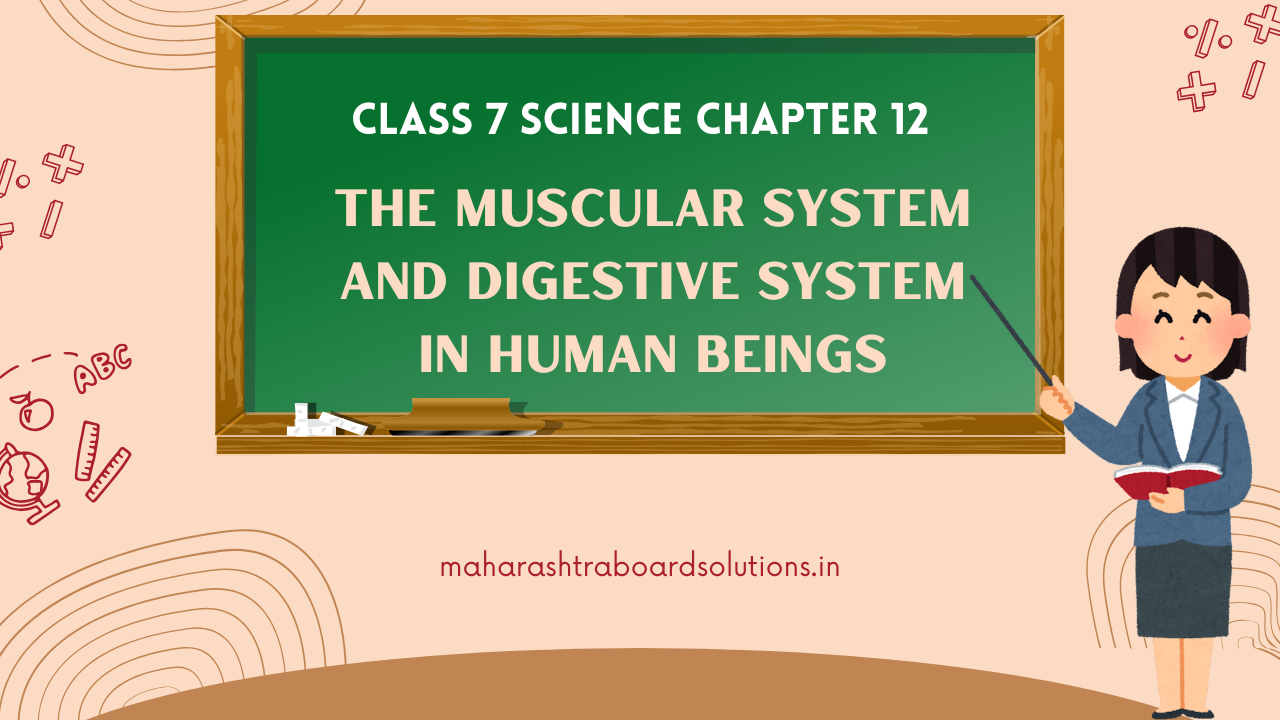
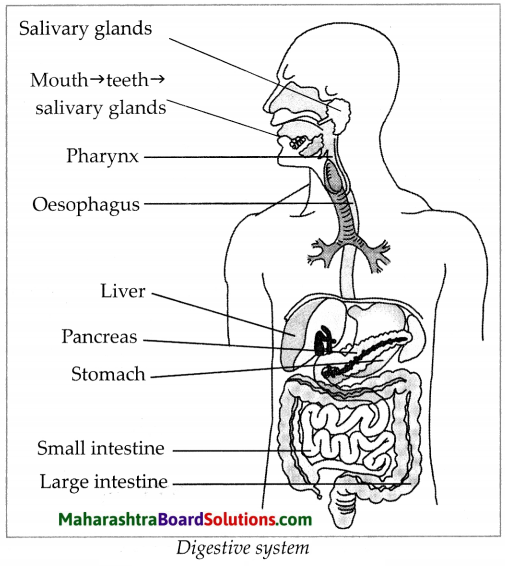

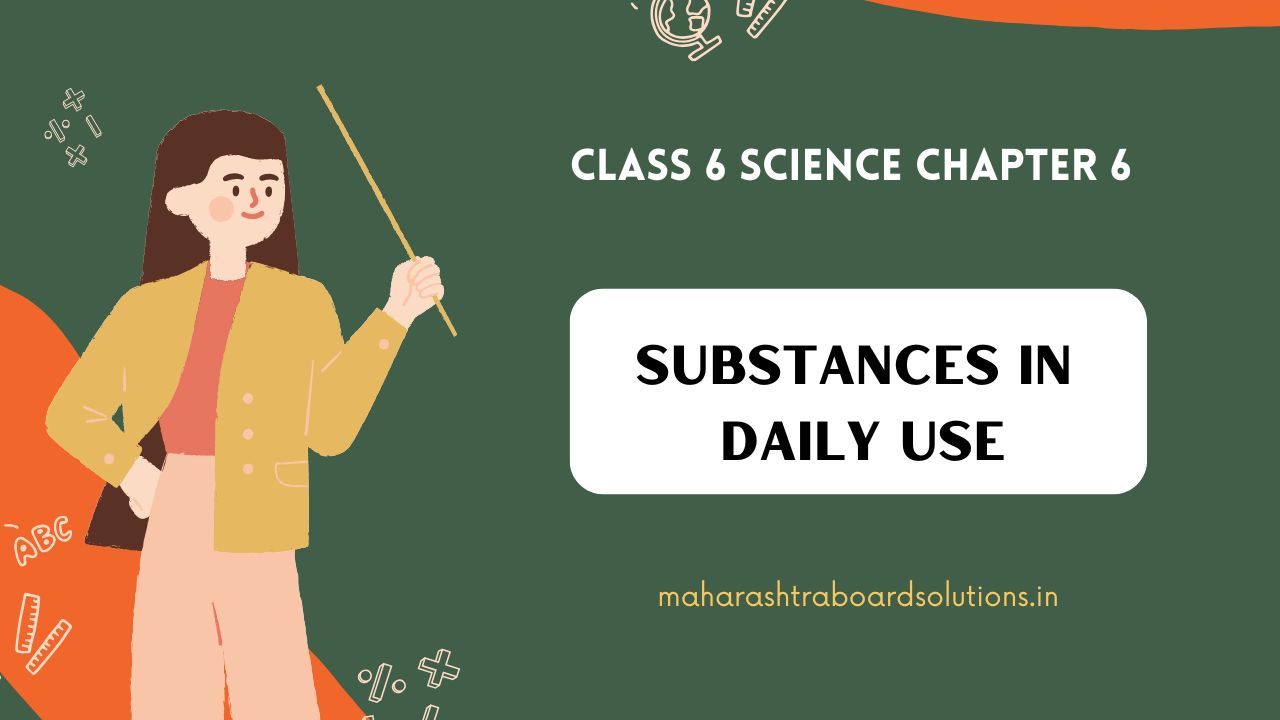
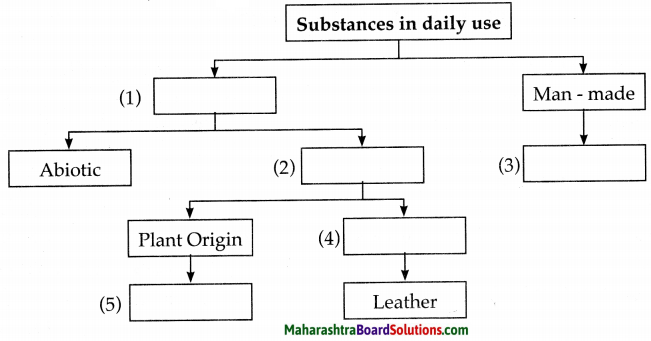
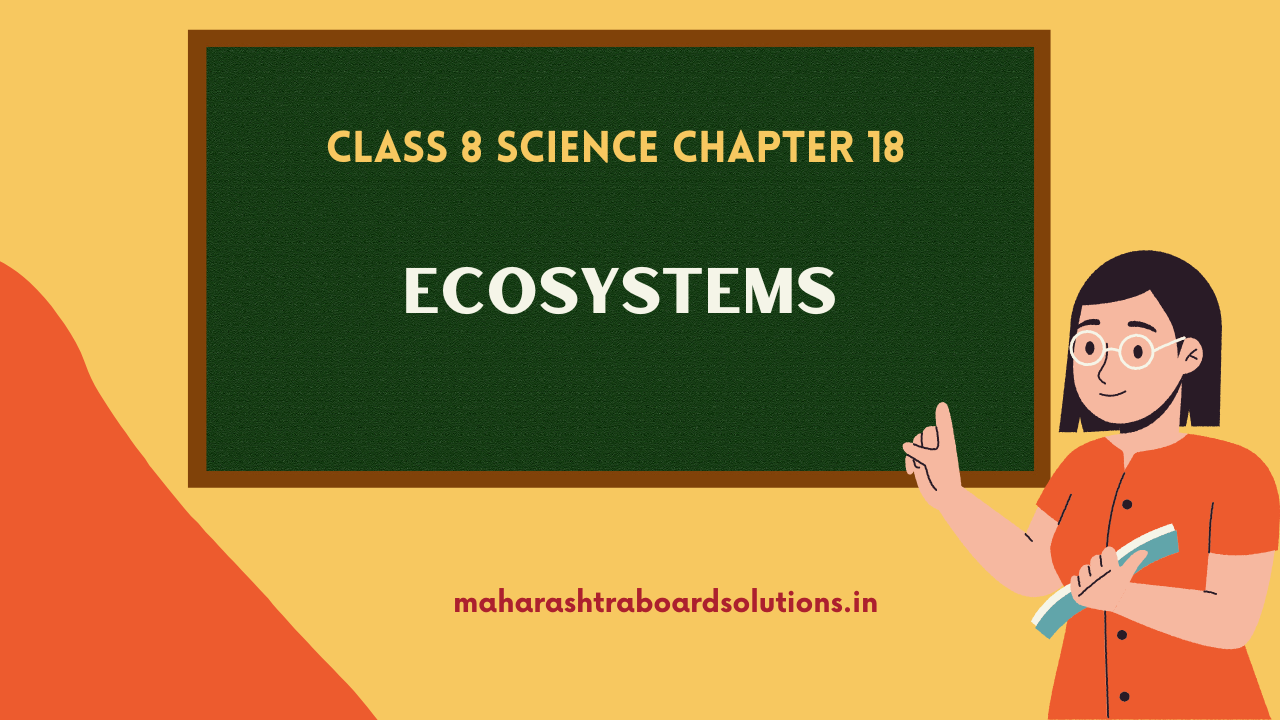
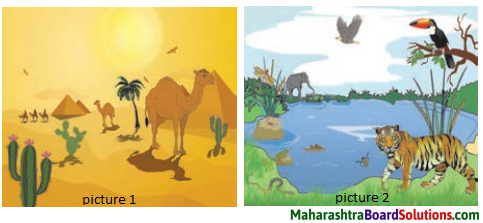



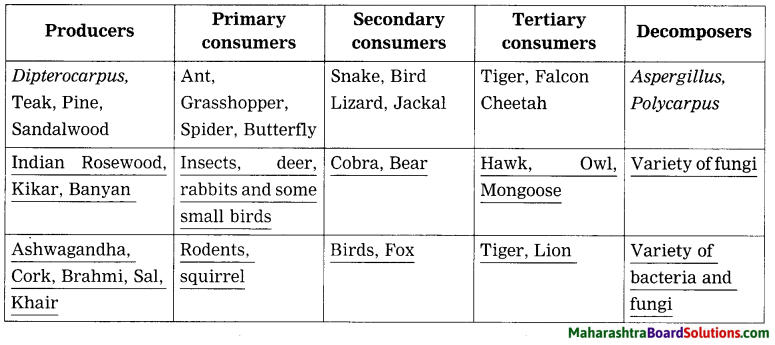

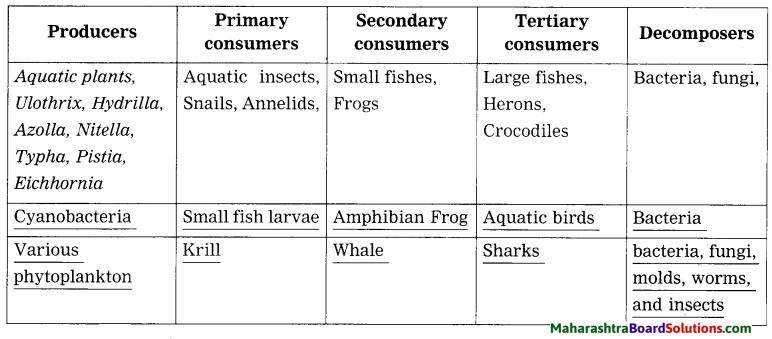
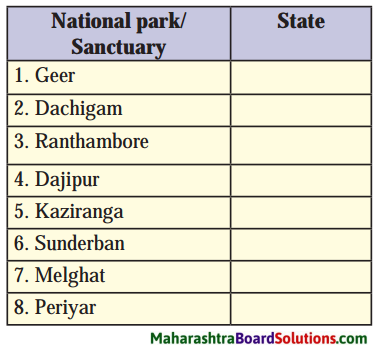
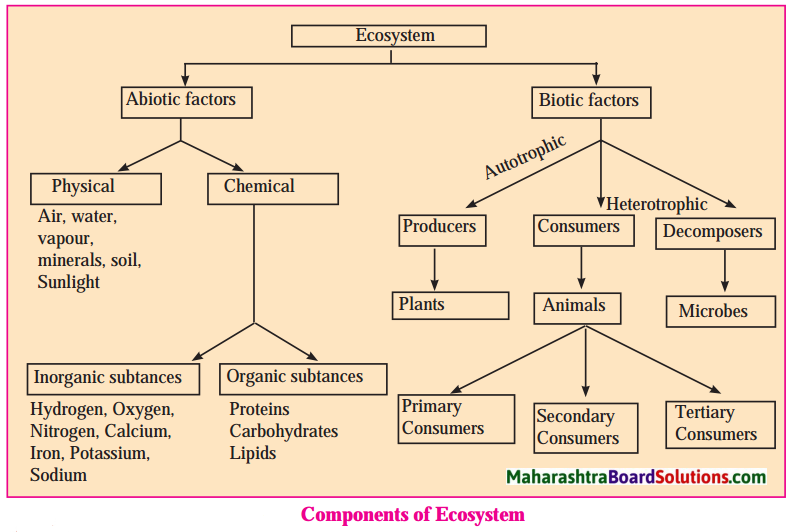
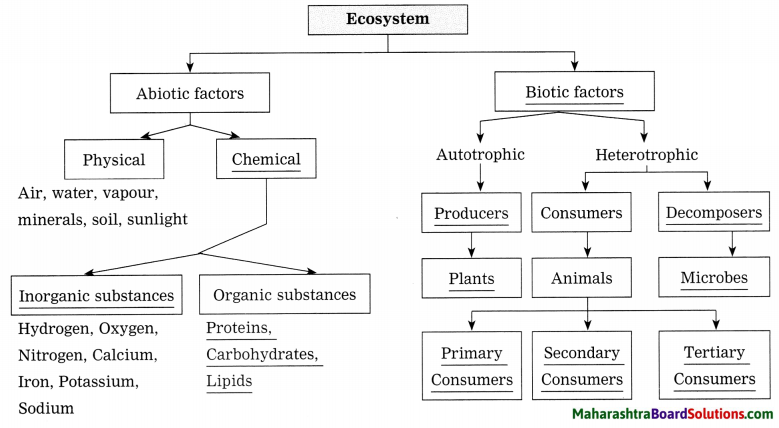
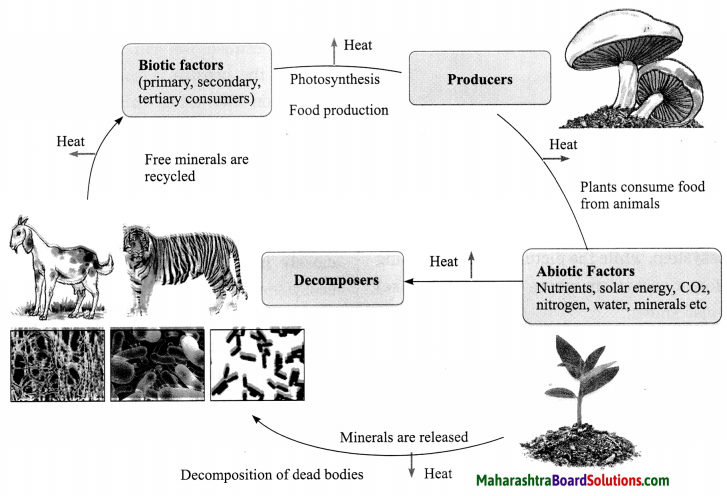
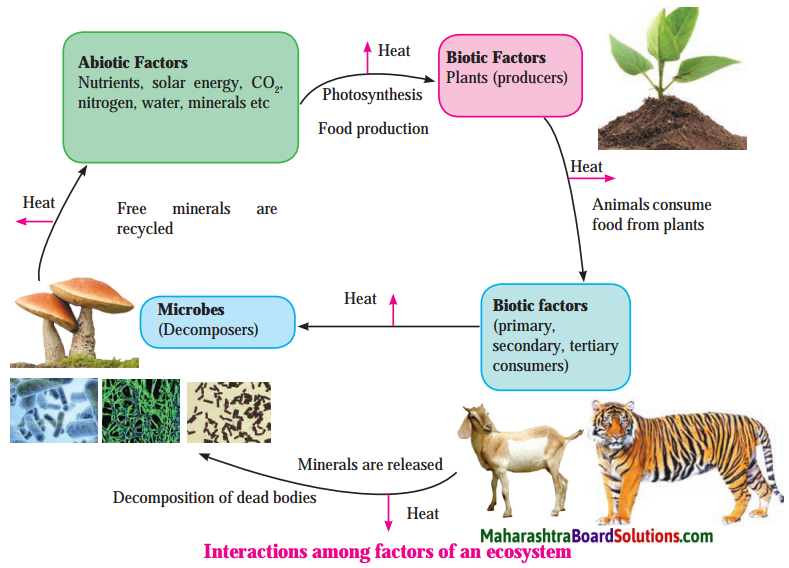




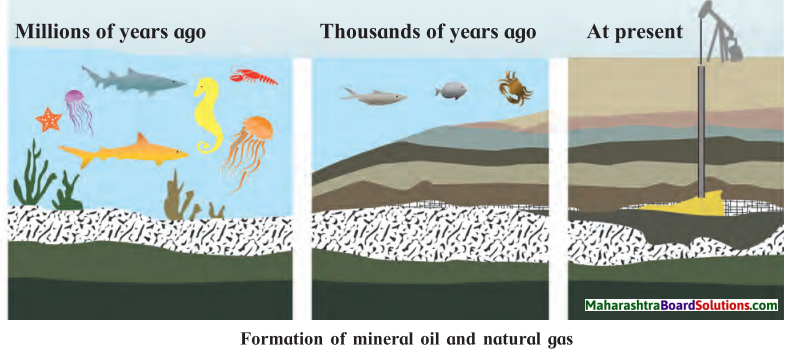
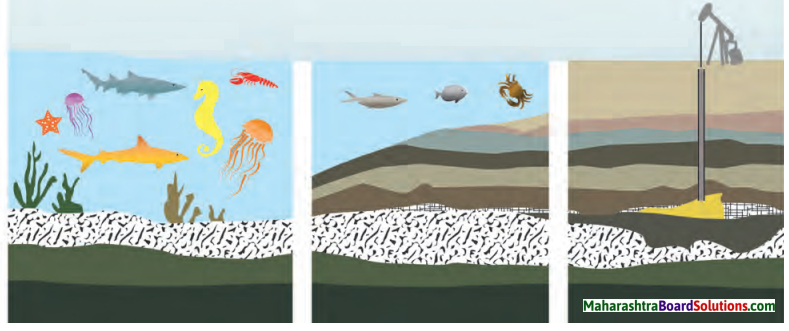

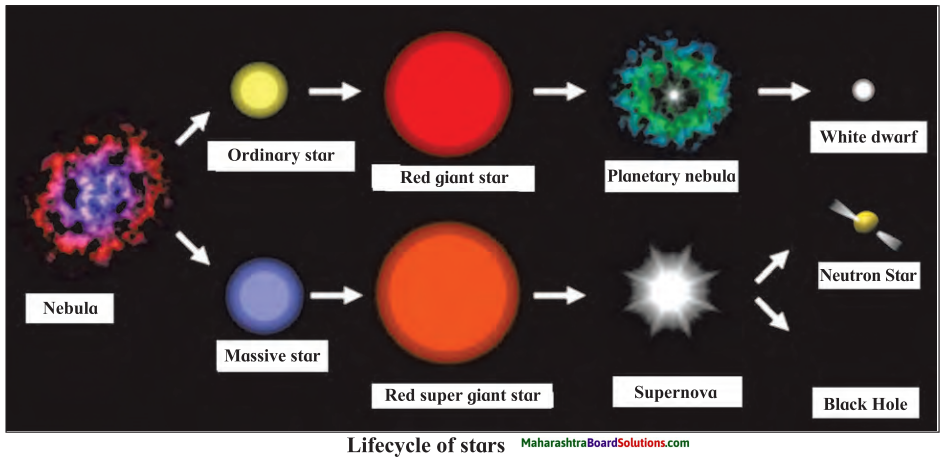 Answer:
Answer:
